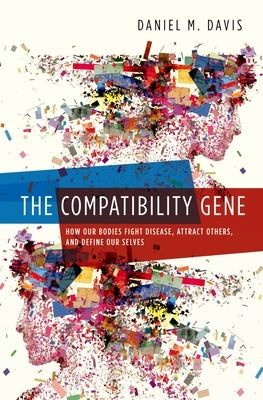This is the story of a few human genes and how we discovered what these genes do. We each have around 25,000 genes, but the genes in this story are those that vary the most from person to person. These genes--called compatibility genes--are, in effect, a molecular signature that distinguishes each of us as individuals. Davis tells the remarkable story of the discovery of compatibility genes, and how decades of patient scientific inquiry, punctuated with individual strokes of genius, have unraveled their workings. Davis reveals how our compatibility genes fight disease, and how this fight varies in all of us and is unique. The version of these genes that we have inherited determines the extent to which we are susceptible or resistant to a vast range of different illnesses. What is particularly fascinating is that these same genes influence the wiring of our brains, the lovers we choose, and successful pregnancies. Why this would be so is explored by Davis with provocative new research that uncovers the connections between fighting disease, choosing mates, and having healthy babies. By bringing together evidence from diverse fields of biology, this book argues that our compatibility genes are central to how we live and when we die, and that a shocking amount of what we do and who we are is determined by how we have evolved to survive disease. Science has never been more elusive or tantalizing than in revealing the nature of ourselves--and unlocking the secrets of our compatibility genes will be central to 21st-century medicine.
Author: Daniel DavisPublisher: Oxford University Press, USA
Published: 10/01/2013
Pages: 248
Binding Type: Hardcover
Weight: 1.05lbs
Size: 9.30h x 6.40w x 1.00d
ISBN13: 9780199316410
ISBN10: 0199316414
BISAC Categories:-
Medical |
Immunology-
Medical |
DiseasesAbout the Author
Daniel M. Davis, PhD, is a distinguished immunologist whose work has established new concepts on how immune cells communicate with each other, how immune cells recognize disease, and how viruses spread between cells. He is currently Professor of Immunology at the University of Manchester, UK, where he is the Director of Research at the Manchester Collaborative Center for Inflammation Research. Davis pioneered the use of microscopy to help visualize key molecular components of immune responses. His work helped establish a new concept of how immune cells communicate with each other and how they recognize disease. He has published over 100 academic papers, including papers in Nature and Science, collectively cited over 6,000 times. He was the recipient of a Lister Prize in 2005, a Wolfson Royal Society Merit Award in 2008, and became a Fellow of the Academy of Medical Sciences in 2011.





